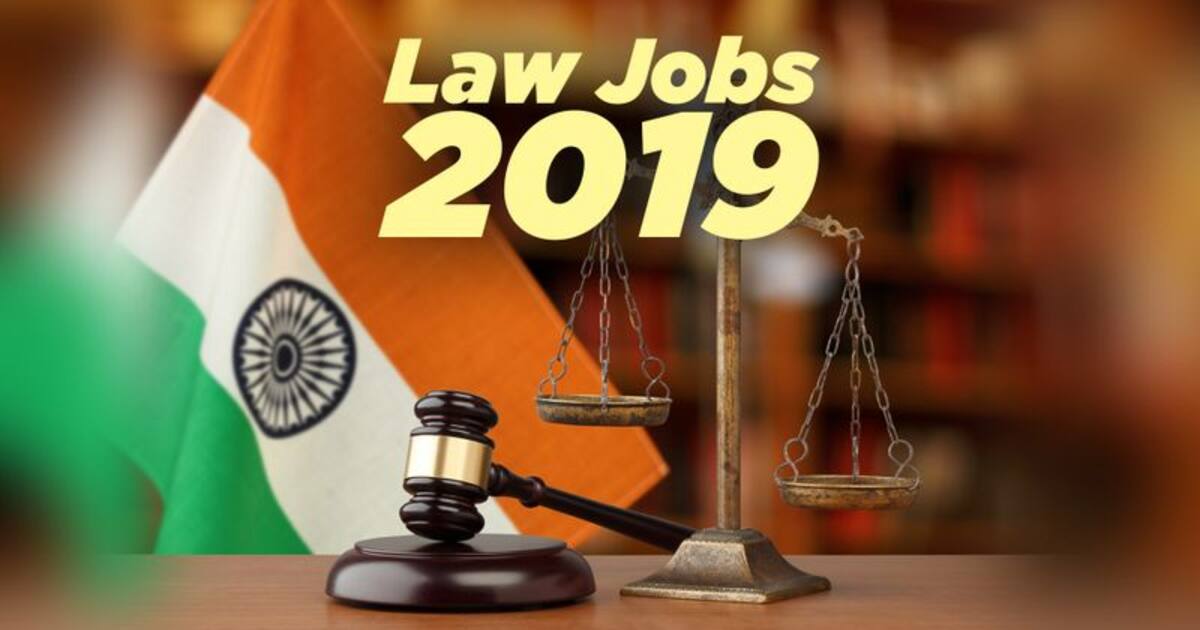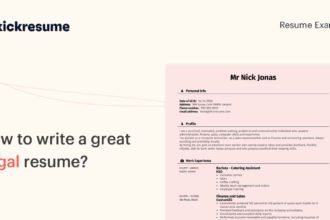How to apply for government legal jobs in Lucknow is an essential guide for aspiring legal professionals eager to make their mark in the public sector. The realm of government legal positions offers a diverse array of opportunities, from legal advisors to public prosecutors, each requiring specific qualifications and skills. Navigating the intricacies of this application process can be daunting, yet with the right preparation and knowledge, candidates can significantly enhance their chances of success.
Understanding the types of legal jobs available, the qualifications needed, and the roles associated with these positions will provide a solid foundation for applicants. This guide aims to illuminate the steps involved in applying, from the paperwork required to the critical timelines that must be adhered to, ensuring that candidates are well-prepared to seize the opportunities that lie ahead.
Understanding Government Legal Jobs
The realm of government legal jobs offers a diverse range of opportunities for aspiring legal professionals. These positions are pivotal in ensuring that laws are implemented and upheld within various public sectors. Understanding the types of legal roles available, the qualifications required, and the responsibilities associated with these positions is essential for anyone wishing to pursue a career in this field, particularly in Lucknow.
Government legal jobs encompass several categories, each with distinct functions and expectations. In Lucknow, candidates may find roles in various departments such as the judiciary, public prosecution, legal advisory positions, and compliance roles within government bodies. Furthermore, opportunities can exist within public sector undertakings where legal oversight is crucial.
Types of Legal Jobs in the Government Sector
The range of legal jobs available in the government sector is extensive and varies from one department to another. Below are some primary types of positions:
- Judicial Services: These roles involve working as judges or magistrates, interpreting and applying law in court settings.
- Public Prosecutor: This position entails representing the state in criminal cases and overseeing the prosecution of offenders.
- Legal Advisor: Legal advisors provide counsel to government agencies on legal matters and assist in policy formulation.
- Compliance Officer: Compliance officers ensure that government departments adhere to legal standards and regulations.
Understanding the array of roles helps candidates better align their skills and aspirations with the specific needs of each position.
Qualifications Required for Legal Positions in Lucknow, How to apply for government legal jobs in Lucknow
The qualifications for legal positions within the government sector in Lucknow are typically stringent and are designed to ensure that candidates possess the necessary legal acumen and ethical standards. The fundamental requirements generally include:
- Educational Background: A Bachelor of Laws (LLB) degree from a recognised university is essential. Additionally, candidates may pursue higher qualifications such as a Master of Laws (LLM) to enhance their prospects.
- Bar Council Registration: Most legal roles require candidates to be registered with the Bar Council of India, allowing them to practise law.
- Experience: Practical experience through internships or clerkships can significantly boost a candidate’s employability. Specific roles, such as judges, may demand extensive experience in the legal field.
- Competitive Examinations: Aspirants often need to pass competitive exams, such as the Judicial Services Examination or State Public Service Commission exams.
The academic and professional journey for legal positions can be rigorous but is essential for maintaining a high standard of legal practice within government roles.
Job Roles and Responsibilities in Government Legal Jobs
The responsibilities associated with government legal jobs vary widely depending on the specific role. However, several core responsibilities are common across many positions:
- Legal Research: Conducting thorough research to support legal proceedings and policy-making is a fundamental duty.
- Advising Government Officials: Legal professionals often provide guidance to government officials on the legal implications of proposed actions.
- Drafting Legal Documents: Responsibilities include drafting contracts, briefs, and other legal documents to ensure compliance with the law.
- Representing the Government: In judicial settings, legal professionals represent the government in various legal matters, advocating for the state’s interests.
A quote that encapsulates the essence of these roles is:
“Legal professionals in government play a critical role in upholding justice and ensuring the integrity of the legal system.”
These roles demand not only an understanding of law but also the ability to navigate complex legal frameworks and ethical dilemmas inherent in public service.
Application Process for Government Legal Jobs: How To Apply For Government Legal Jobs In Lucknow
The application process for government legal jobs in Lucknow requires a systematic approach to ensure that all necessary criteria are met and deadlines adhered to. Aspiring candidates must navigate a well-defined pathway that includes several key steps, each pivotal to securing a position within the legal framework of government employment.
The application procedure typically involves multiple stages, beginning with the identification of suitable vacancies through official job portals or government announcements. Once a position is selected, candidates must prepare a thorough application that includes specific documentation. The following Artikels the fundamental steps involved in applying for government legal jobs, as well as the necessary documentation and an example timeline for the application process.
Steps Involved in the Application Process
Understanding the procedural steps is crucial for a successful application. The key actions are Artikeld as follows:
1. Research Job Vacancies: Candidates should regularly check government job portals such as the Uttar Pradesh Public Service Commission (UPPSC) website and other relevant platforms for announcements regarding legal positions.
2. Review Eligibility Criteria: Each job listing specifies qualifications and experience required. It is essential to ensure compliance with these criteria before proceeding.
3. Gather Necessary Documents: A comprehensive list of documents is required for application submission, which may include:
– Curriculum Vitae (CV) detailing educational background and work experience.
– Copies of educational certificates and mark sheets.
– Proof of legal qualifications (such as a law degree).
– Experience certificates from previous legal roles (if applicable).
– A recent passport-sized photograph.
– Identity proof (such as Aadhaar card or voter ID).
4. Fill Out the Application Form: Candidates must accurately complete the application form, ensuring that all information mirrors the supporting documents provided.
5. Submit Application: Applications can usually be submitted online through the respective government portal or, in some cases, via post to the designated office.
6. Await Confirmation: After submission, candidates should monitor their application status, which may include receiving an acknowledgment email or notification.
7. Prepare for the Selection Process: This may include written examinations, interviews, or group discussions, depending on the specific job requirements.
Timeline for the Application Process
Establishing a timeline for the application process is critical for effective management of tasks and deadlines. The following example illustrates a generic timeline that candidates may follow:
| Action | Timeline |
|---|---|
| Job Vacancy Announcement | Week 1 |
| Application Period Opens | Week 2 |
| Deadline for Application Submission | Week 4 |
| Examination Date (if applicable) | Week 6 |
| Interview Notification | Week 8 |
| Final Results Declaration | Week 10 |
Adhering to this timeline and being diligent about deadlines will greatly enhance the chances of a successful application. Candidates are encouraged to keep track of specific dates announced in job notifications, as they may vary for different roles.
Preparing for Government Legal Job Interviews

Securing a government legal position often hinges on how well you perform in the interview. This stage is a crucial opportunity to showcase your knowledge, skills, and suitability for the role. It is imperative to approach this process with thorough preparation, ensuring that you convey your expertise and enthusiasm effectively.
In preparation for interviews in government legal roles, candidates should focus on both the substantive aspects of law and the procedural elements of the interview process. Familiarity with legal concepts relevant to the position you are applying for is essential, as is understanding the specific requirements of government roles. This includes an appreciation for public service values and how they influence legal practice in the public sector.
Effective Interview Preparation Strategies
To excel in your interview, consider these strategies that can significantly enhance your preparation:
1. Research the Role and Organisation: Understand the specific legal practices and areas of law that the government body focuses on. This includes reading about recent cases, significant legal reforms, and the organisation’s broader goals.
2. Mock Interviews: Engage in mock interviews with peers or mentors familiar with legal interviews. This practice can help you refine your responses and gain confidence.
3. Dress Professionally: Your attire should reflect the seriousness of the role. Adopting a professional appearance helps create a positive first impression.
4. Review Your CV and Cover Letter: Be prepared to discuss your previous experiences and how they relate to the role. Familiarise yourself with all details on your application, as they are likely to be referenced during the interview.
5. Prepare Questions: Demonstrating curiosity about the role and the organisation can set you apart from other candidates. Prepare insightful questions that reflect your interest and understanding of the job.
Common Interview Questions in Legal Positions
Government legal interviews often include questions that assess both general competencies and legal knowledge. Here are some prevalent questions along with approaches to tackle them:
– “What motivates you to work in public service?”
Focus on your commitment to justice and public welfare, illustrating your passion for utilising your legal skills in a service-oriented context.
– “Describe a legal challenge you faced and how you overcame it.”
Use the STAR method (Situation, Task, Action, Result) to detail your experience, highlighting your problem-solving skills and legal acumen.
– “How do you stay updated with legal developments?”
Discuss your strategies for continuous learning, such as subscribing to legal journals, attending seminars, or participating in workshops.
– “Explain a complex legal concept to a layperson.”
This tests your communication skills. Choose a legal concept relevant to the role and practice explaining it in simple terms, demonstrating both your understanding and communication abilities.
Resources for Interview Preparation
Having the right resources can elevate your preparation to the next level. The following materials are particularly useful:
– Legal Textbooks and Journals: Staying informed about current legal principles and case law can bolster your knowledge base.
– Online Courses and Webinars: Various platforms offer courses tailored to government legal practices, enhancing your understanding of specific areas.
– Interview Prep Books: Books specifically targeting legal interviews can provide insight into the nuances of legal questioning.
– Networking: Connecting with professionals in the field via platforms like LinkedIn can provide insider tips and advice on interview processes.
– Government Websites: Often, government agencies provide details about their work, values, and recent initiatives, which can be integral to your interview preparation.
“Preparation is the key to success.”
The preparation phase for government legal job interviews demands a strategic approach, combining knowledge acquisition with practice and self-reflection. By employing these strategies, you can significantly enhance your chances of success in securing a government legal position.
Networking and Resources for Legal Job Seekers
In the competitive landscape of legal employment, particularly within government positions in Lucknow, networking and leveraging resources can significantly enhance a candidate’s prospects. Establishing connections with professionals in the field and accessing relevant platforms is essential for uncovering job opportunities and gaining insights into the legal sector.
Key Organisations and Platforms for Networking
Various organisations and platforms play a pivotal role in facilitating networking for legal job seekers in Lucknow. These entities provide opportunities to meet industry professionals, attend events, and access job openings. Engaging with these organisations can lead to invaluable connections and insights.
- Bar Council of Uttar Pradesh: This governing body for lawyers in Uttar Pradesh offers networking events and resources tailored for legal professionals.
- Lucknow University’s Law Department: The law faculty often organises seminars and workshops, providing a robust platform for students and professionals to network.
- LinkedIn: A vital online resource for professional networking; candidates can connect with established lawyers, join relevant groups, and stay updated on job postings.
- Legal Aid Services: Engaging with these organisations not only helps in networking but also provides insights into public service roles and volunteer opportunities.
Importance of Mentorship in the Legal Field
Mentorship serves as a cornerstone for professional development in the legal field, offering guidance, support, and insight from seasoned practitioners. Finding a mentor can provide a wealth of knowledge about navigating the intricacies of government legal careers.
- Benefits of Mentorship: Mentors can share their experiences, offer advice on career paths, and introduce mentees to helpful contacts within the legal community.
- Finding a Mentor: Attend networking events, utilise LinkedIn to connect with legal professionals, and reach out to alumni from law schools you attended.
- Engagement in Legal Forums: Participating in legal discussions online can help identify potential mentors who share similar interests and expertise.
Job Fairs and Recruitment Events
Job fairs and recruitment events are instrumental in the pursuit of government legal jobs in Lucknow. These occasions provide direct access to prospective employers and facilitate the exchange of information regarding available positions.
- Annual Government Job Fair: Typically hosted in Lucknow, this event features numerous government departments, including legal positions.
- University Career Fairs: Local universities often organise career fairs where government legal job opportunities are presented to students and alumni.
- Specialised Legal Conferences: Events focused on legal practice can serve as networking opportunities where job openings in public service are often discussed.
Preparing for law job interviews in Lucknow requires a strategic approach, as candidates must demonstrate both legal knowledge and interpersonal skills. A useful resource can be found in this guide on how to prepare for law job interviews in Lucknow , which outlines key tips for success. Additionally, staying informed about the current legal job market trends in Lucknow can significantly enhance your competitive edge.
The legal job market in Lucknow is evolving, with new trends emerging that are vital for aspiring lawyers to understand. For those keen on grasping the nuances, exploring the current legal job market trends in Lucknow is essential. This knowledge complements the preparation needed for interviews, as outlined in the guide on how to prepare for law job interviews in Lucknow , ensuring candidates are well-equipped to navigate this dynamic field.




